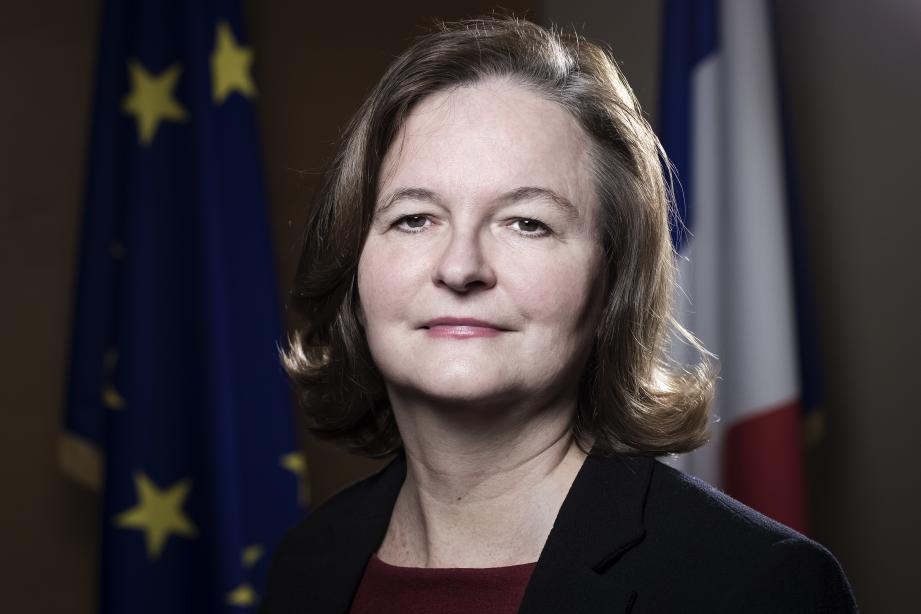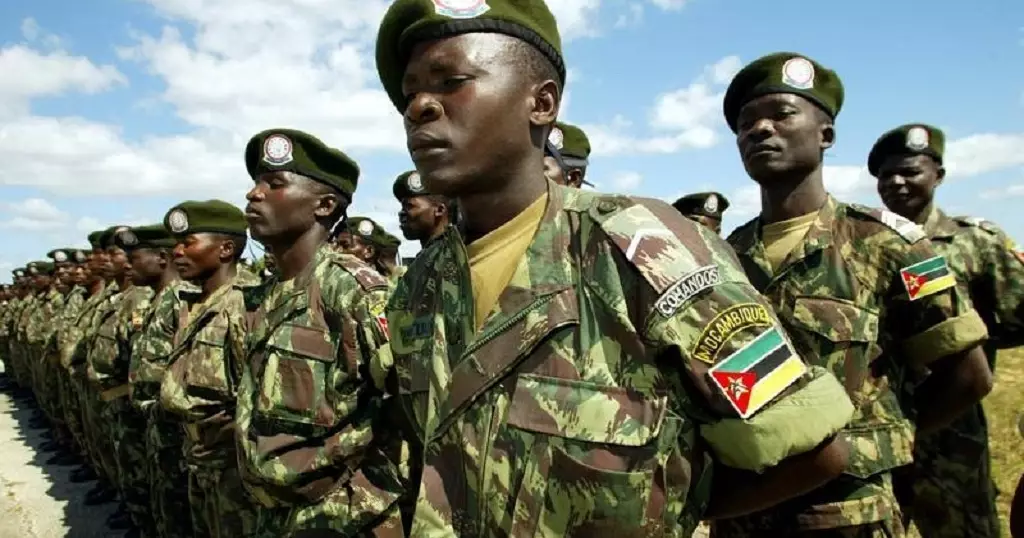A delegation of seven Members of the European Parliament called today in Maputo for the European Union (EU) to speed up the delivery of non-lethal military equipment to Mozambican soldiers trained by the EU to fight terrorism in the northern province of Cabo Delgado.
The chairwoman of the European Parliament’s Subcommittee on Security and Defense, Nathalie Loiseau, told a press conference that “we need to speed up the delivery of the promised equipment.”
Loiseau announced that MEPs would make their case in Brussels that the material resources needed to train Mozambican soldiers should be made available as soon as possible.

The funds include vehicles, ammunition for training, military uniforms, and boots, said the head of the delegation, which began delivering on Sept. 9.
She noted that the training conducted by the EU military trainers is producing the desired results, reflected in the acquisition of skills and coordination capabilities in the fight against armed groups in Cabo Delgado.
“I spoke with the Chief of Staff [of the Mozambican Armed Forces], and he was satisfied with the training,” she stressed.
Nathalie Loiseau said progress had been made in fighting the insurgency in northern Mozambique but acknowledged that it remained challenging to defeat the rebels.
She stressed the importance of European solidarity in the fight against the insurgents and pointed out that the armed groups were committing atrocities against the defenseless population.
The delegation, which concluded its two-day visit to Mozambique today, consisted of seven MEPs from the European Parliament’s Subcommittee on Security and Defense and visited a training camp run by EU military trainers in Chimoio, central Mozambique.
The MEPs met with senior Mozambican state officials and civil society representatives.

The delegation of MEPs from the Subcommittee on Security and Defense included Arnaud Danjean (France), Attila Ara-Kovács (Hungary), Isabel Santos (Portugal), Jaak Madison (Estonia), Lars Patrick Berg (Germany), and Mick Wallace (Ireland).
This visit occurred shortly after EU High Representative for Foreign Affairs and Security Policy Josep Borrell visited Mozambique to hand over the first tranche of non-lethal military equipment for Mozambican troops trained by the EU for the fight in Cabo Delgado on Sept. 9 in Maputo.
“This is the first delivery; more will follow soon,” he said at the time, as part of an 89-million-euro package (85 plus an initial tranche of four) for equipment.
Off-road vehicles and individual equipment such as uniforms, helmets, goggles, or water bottles were part of the delivery, carried out at the Katembe military base on the southern shore of Maputo, one of the sites of the EU military training mission.
He added that the next aid deliveries to Mozambique would also include material for the fight on the rivers and at sea, stressing that the European support obeys an integrated vision that provides for economic and social development to restore peace in Cabo Delgado.
From a military perspective, Mozambique is the first country to simultaneously receive combat training and material support under a new instrument – the European Peace Facility – to make the armed forces self-sufficient and no longer dependent on external support.
The two-year mission supports the training of 1,100 soldiers or 11 rapid reaction forces of the Mozambican Armed Forces (commandos in Chimoio and marines in Katembe, as well as air controllers). 119 members from 12 EU countries carry it out.
Portugal is responsible for the mission and provides the largest contingent, currently 68 soldiers from the three branches of the armed forces and the GNR.
The combined cost of the training operation, which the European Peace Facility covers, is estimated at 15 million euros for the two years.
Cabo Delgado province is rich in natural gas but has been terrorized by armed violence since 2017, with some attacks citing the Islamic State extremist group.
The insurgency led to a military response a year ago by forces from Rwanda and the Southern African Development Community (SADC).
This liberated districts near gas projects but led to a new wave of attacks in other areas, closer to Pemba’s provincial capital and the neighboring province of Nampula.
According to the International Organization for Migration (IOM), about 800,000 people have been displaced due to the conflict, and about 4,000 people have died, according to the conflict registration project ACLED.

